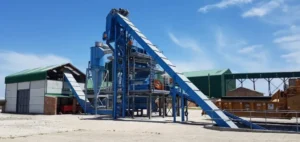Integrated biorefineries, capable of simultaneously processing different feedstocks, are gaining importance in the energy industry. Their ability to diversify biomass sources contributes to the economic stability of industrial projects and mitigates risks associated with dependence on a single resource type. Combining raw materials from food crops, such as sugar molasses and damaged grains, with non-food agricultural residues like rice straw, provides operators flexibility in production. This operational approach ensures improved profitability through simultaneous valorization of industrial by-products.
Feedstock diversification and profitability
First-generation ethanol production, mainly derived from food sources such as corn, rice, or sugar molasses, is a mature, cost-effective technology widely adopted by the industry. However, it remains subject to criticism regarding food security due to its reliance on edible crops. Conversely, second-generation ethanol, produced from non-food lignocellulosic biomass (rice residues, wheat straw, bagasse), involves more complex and costly industrial processes. Yet, this newer technology is industrially valued for its independence from food markets.
These so-called integrated biorefineries enhance their profitability by simultaneously producing biofuels and commercially valuable industrial by-products. Among these are compressed biogas (CBG), derived from industrial waste generated during ethanol production, as well as high-value derivatives such as distillers dried grains with solubles (DDGS) and distillers corn oil. Sales of these coproducts generate additional revenues, enhancing the economic viability of industrial projects within the biofuel sector.
Industrial synergies and enhanced economic viability
Valorization of industrial coproducts is a crucial lever for optimizing the economic models of integrated biorefineries. For instance, lignin, a byproduct of second-generation ethanol production, is now converted into biobitumen, an industrial substitute for traditional bitumen used in road construction. This process has already been implemented in India, where a first national highway stretch of 1 km utilizing lignin-based biobitumen was inaugurated at the end of 2024 on the Nagpur-Mansar road, thereby validating its operational feasibility.
In this context, India is deploying several industrial programs, such as the National Bioenergy Programme and the GOBARdhan scheme, designed to financially and regulatorily support integrated biorefinery projects. These initiatives facilitate the emergence of economically viable industrial energy solutions, notably through combined production of biofuels, compressed biogas, and solid and liquid organic fertilizers generated from manufacturing processes.
Industrial development of innovative fuels
Parallel to ethanol production, certain companies are actively exploring commercial production of sustainable aviation fuel (SAF) and biohydrogen. The latter, produced from organic waste and agricultural residues, notably stands out for its lower energy requirement compared to traditional hydrogen electrolysis. It requires approximately 10 kW per kilogram of hydrogen produced, compared to 60 kW for electrolysis. This production method attracts industrial interest due to its potential for significantly reducing operating costs.
Integration of production lines within these biorefineries thus allows companies to efficiently exploit all available resources while stabilizing operating costs. This industrial configuration promotes the emergence of large-scale projects, providing a concrete response to current challenges of economic competitiveness within the renewable fuel sector.






















